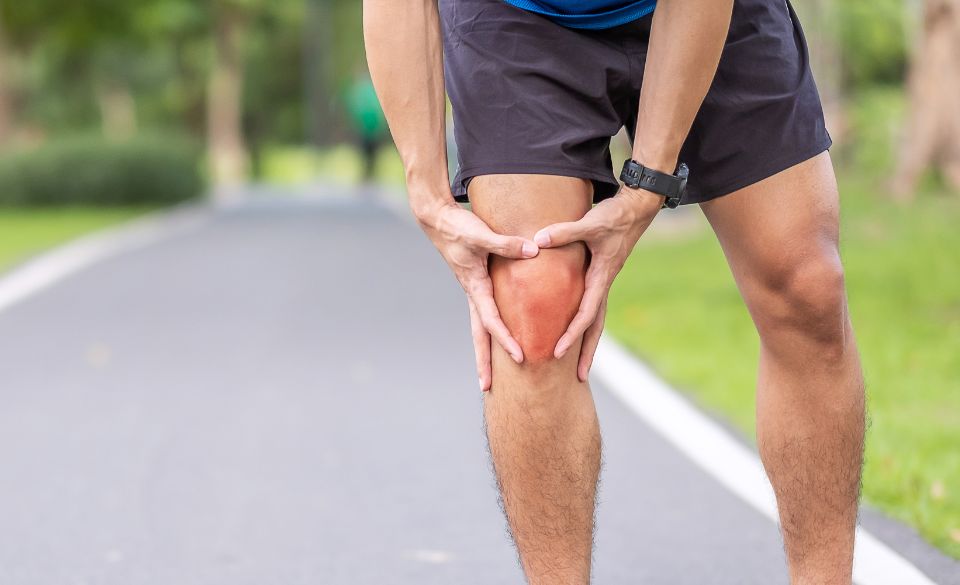
Creaky Knees: Causes, Solutions & Prevention
Page Contents
Knee pain and discomfort can be a common complaint, and one peculiar issue that many people encounter is the dreaded sound of creaky knees. Whether it’s that unsettling popping or cracking noise when you bend your knees or a general feeling of stiffness, creaky knees can be bothersome and, for some, even concerning. In this blog post, we’ll delve into the causes behind creaky knees, explore potential solutions, and discuss prevention strategies to keep your knees feeling their best.
What Causes Creaky Knees?
Creaky knees, often accompanied by unsettling popping or cracking sounds, can be a perplexing and disconcerting experience. To understand the causes of creaky knees, we need to embark on a journey into the intricate world of the knee joint.
Age and Wear and Tear: Imagine your knee joint as a well-oiled machine. Over time, this machine may undergo natural wear and tear. The smooth cartilage that cushions the ends of your leg bones may gradually thin, akin to the tread on a well-worn tire. This reduction in cartilage thickness can diminish the joint’s ability to absorb shock and glide smoothly, leading to friction and the dreaded creaking sounds.
Muscle Imbalances: Our knees rely on a delicate balance of muscles to operate smoothly. Picture a set of cables guiding the movements of a puppet. If one cable is too tight while another is too loose, the puppet’s motions become erratic. Similarly, imbalances in the muscles surrounding the knee joint can disrupt its stability and tracking. Weakness or tightness in muscle groups like the quadriceps or hamstrings can alter the mechanics of the knee, causing noises when you bend or extend it.
Meniscus Issues: Now, let’s introduce the meniscus, a moon-shaped cartilage nestled within the knee joint. Think of it as a shock absorber for your knees. However, if this cushioning structure sustains damage or tears, it’s akin to a pothole on a smooth road. Irregular movements within the knee joint can occur, leading to creaking or popping sounds as the joint tries to navigate the terrain.
So, the next time your knees emit those peculiar creaks, remember that it’s often a result of the complex interplay between age, muscle dynamics, and structural components within the knee joint. While these sounds can be disconcerting, they’re not necessarily indicative of a severe problem. However, if you experience persistent discomfort or swelling along with creaky knees, it’s advisable to seek guidance from a healthcare professional who can provide a thorough evaluation and tailored solutions for your knee health.
Solutions for Creaky Knees
Creaky knees, akin to the whimsical sounds of an old wooden staircase, can be both a nuisance and a source of concern. Fortunately, there’s a symphony of solutions that can help quiet the knee joint’s cacophonous performance and restore harmony to your every step.
Strengthening Exercises: Picture your knee joint as a finely tuned orchestra. The muscles surrounding it, including the quadriceps, hamstrings, and calf muscles, are the talented musicians. Engaging in targeted strengthening exercises is like providing them with expert training. Exercises such as leg lifts, squats, and leg extensions help these muscles reach their peak performance, enhancing joint stability and reducing creakiness.
Flexibility and Stretching: Imagine your knee joint as a well-oiled hinge. To keep it moving smoothly and silently, flexibility is key. Regular stretching exercises can be your backstage pass to enhancing joint mobility. These exercises ensure that ligaments and muscles surrounding the knee maintain their elasticity, reducing the friction that causes creaky knees.
Weight Management: Imagine your knees as pillars supporting a structure. Excess weight is akin to adding extra floors to that structure. Managing your body weight is like ensuring that your knees don’t bear an excessive burden. Maintaining a healthy weight can significantly reduce the stress on your knee joints, alleviating creakiness and discomfort.
Orthotic Support: Visualize your feet as the foundation of a magnificent architectural marvel. Choosing appropriate footwear and orthotic support is like ensuring that the foundation is solid and balanced. Properly cushioned and supportive shoes can help distribute the forces on your knees more evenly, reducing strain and noise.
Anti-Inflammatory Measures: Imagine your knee joint as a sensitive ecosystem. Reducing inflammation is like preserving the tranquility of this ecosystem. Incorporating anti-inflammatory foods and supplements rich in omega-3 fatty acids, such as fish and flaxseed, can help calm the inflammatory response in your joints, potentially reducing creakiness.
Physical Therapy: Think of physical therapy as a conductor guiding the orchestra. A skilled physical therapist can assess your specific muscle imbalances and design a tailored exercise program to address them. They can also employ techniques like manual therapy and ultrasound to alleviate pain and enhance joint function.
Preventing Creaky Knees
Creaky knees, akin to a discordant note in the symphony of life, can disrupt your daily rhythm. To ensure that your knees continue to perform a harmonious melody, it’s crucial to understand how to prevent creakiness and maintain the graceful movement of your joints.
Stay Active: Think of your knees as finely tuned instruments. Regular physical activity is the practice that keeps them in tune. Engaging in activities like walking, swimming, or cycling helps maintain joint health by promoting circulation, lubricating the knee joint, and strengthening the surrounding muscles. These low-impact exercises can be gentle on your knees while offering a delightful tune to your overall well-being.
Proper Footwear: Consider your shoes as the conductor’s baton guiding the symphony of your movement. Choosing footwear with proper arch support, cushioning, and a good fit is essential. Ill-fitting or worn-out shoes can disrupt the harmonious movement of your knees, leading to potential creakiness. Invest in shoes that cater to your specific activities and provide adequate support.
Warm-Up and Cool Down: Imagine your knees as delicate instruments that require a gentle warm-up before the grand performance. Before any physical activity, it’s vital to warm up your muscles and joints. This prepares them for the demands of movement, reducing the risk of injury or strain. Similarly, cooling down after exercise helps bring your knees back to a restful state, preventing sudden shifts that can contribute to creaky knees.
Weight Management: Visualize your knees as the pillars supporting an architectural masterpiece. Excess weight places an additional burden on these pillars. Maintaining a healthy weight through a balanced diet and regular exercise is like ensuring the stability of your architectural marvel. This not only relieves stress on your knees but also reduces the risk of creakiness.
Hydration: Picture the lubricating synovial fluid in your knees as a vital component of your joint’s orchestra. Staying well-hydrated ensures that this fluid remains viscous and effective in reducing friction. Drinking enough water throughout the day helps maintain the fluid’s consistency, contributing to smoother joint movement.
Proper Technique: Just as a musician practices proper finger placement, correct movement technique is essential. Whether you’re lifting, running, or performing any physical activity, pay attention to your body mechanics. Using proper form reduces the strain on your knees and helps prevent unnecessary wear and tear.
In the grand composition of your life, your knees play a pivotal role in the symphony of movement. Preventing creaky knees involves nurturing them through regular activity, proper footwear, warm-up and cool-down rituals, weight management, hydration, and mindful movement. By adhering to these practices, you can ensure that your knees continue to contribute to the harmonious and graceful melody of your daily life, free from the discordant notes of creakiness.
Final Words – Creaky Knees: Causes, Solutions & Prevention
In conclusion, creaky knees can be a common issue with various underlying causes, including age-related changes, muscle imbalances, and meniscus problems. Fortunately, there are solutions and preventive measures to address and reduce knee joint noise. Incorporating strengthening exercises, maintaining flexibility, managing your weight, staying active, choosing the right footwear, and practicing proper warm-up and cool-down routines can all contribute to healthier knees and a quieter, more comfortable stride. If you experience persistent knee discomfort or noise, consult a healthcare professional for a thorough evaluation and personalized guidance.




